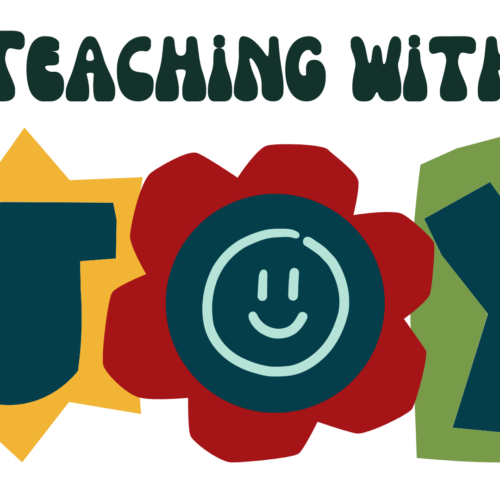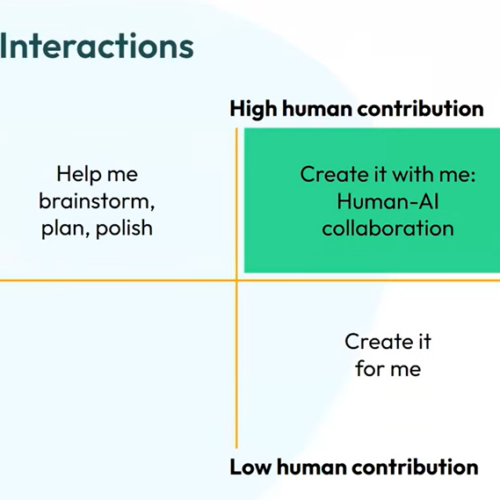How to End a Course: Teaching Tips
 Imagine an evening concert with a firm midnight curfew. The opening number grabs the crowd’s attention. The middle part of the show is filled with improvised riffs, extended solos, and deep cuts—maybe even a break between sets. But as the night progresses the band starts playing faster and faster in an effort to “get through” their planned set list ahead of the deadline. By the last few songs, the concert is a blur of incoherent noise as the band races to the finish line. Does this sound like a typical college course? Too often we end a semester in a breathless rush to cover the material and forget about the students trying to process all of that information. Cognitive load theory recognizes that overwhelming students with new course content (particularly at the end of a semester) can impede their long-term processing of that information. So, it is best to slow down, pause, reflect, and perhaps look to the future in an effort to end classes in a meaningful and effective way.
Imagine an evening concert with a firm midnight curfew. The opening number grabs the crowd’s attention. The middle part of the show is filled with improvised riffs, extended solos, and deep cuts—maybe even a break between sets. But as the night progresses the band starts playing faster and faster in an effort to “get through” their planned set list ahead of the deadline. By the last few songs, the concert is a blur of incoherent noise as the band races to the finish line. Does this sound like a typical college course? Too often we end a semester in a breathless rush to cover the material and forget about the students trying to process all of that information. Cognitive load theory recognizes that overwhelming students with new course content (particularly at the end of a semester) can impede their long-term processing of that information. So, it is best to slow down, pause, reflect, and perhaps look to the future in an effort to end classes in a meaningful and effective way.
Here are some suggestions:
- Give students an opportunity to reflect on their learning during the semester by asking them to summarize key points, or perhaps think about what they will most remember five (or ten) years into the future.
- Extend that activity by forming groups and asking them to compare responses and build a collaborative list. Perhaps you could make your own list and see how they compare.
- Provide a synthesis of the course materials and tie the course material into just a few big picture themes (this works especially well if you have clearly articulated course goals). Experts in a field can often see these big picture themes as obvious or intuitive. Many subject novices may struggle to make these connections.
- Organize a “Gallery Walk” where students circulate around the classroom and respond to questions about the course
- Instead of a review session, create a game where students (in either groups or as individuals) compete to get the correct responses. You can use a tool like Poll Everywhere for this, or access templates for Jeopardy-style questions. UC Irvine also offers some suggestions for in-class games as review sessions.
- Brian Croxall suggests asking students to write a letter to future students. His prompt: “Write a short letter to future students in the class, letting them know whatever you think is most important about the instructor, the course, the assignments, and the reading.” He sees this as an opportunity for students to reflect on their learning, as well as a stealth form of class evaluation.
Resources and links:
UC Berkeley Teaching Center: https://teaching.berkeley.edu/last-day-class
Dusquene Center for Teaching Excellence: https://www.duq.edu/about/centers-and-institutes/center-for-teaching-excellence/teaching-and-learning-at-duquesne/fizzle-or-finale-on-the-final-day-of-class
Georgetown University Teaching Commons: https://commons.georgetown.edu/teaching/teach/ending-the-semester/
BYU Center for Teaching and Learning: https://ctl.byu.edu/tip/activities-last-day-class
Prof Hacker. Students write letters to future students: https://www.chronicle.com/blogs/profhacker/improve-your-course-evaluations-by-having-your-class-write-letters-to-future-students/48659
Gallery Walk from Carleton College: https://serc.carleton.edu/introgeo/gallerywalk/step.html
Review games from UC Irvine: http://www.researchandteaching.bio.uci.edu/TA%20Training%20Documents/Independent%20TAs/Activity%20Exam%20Review%20Game.pdf





